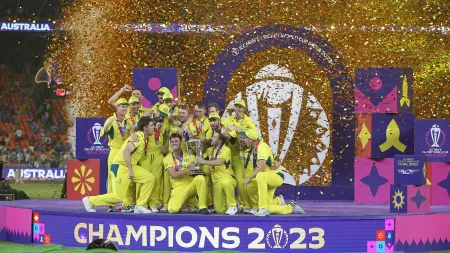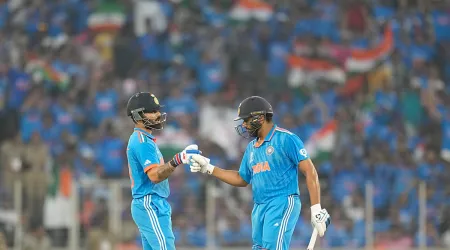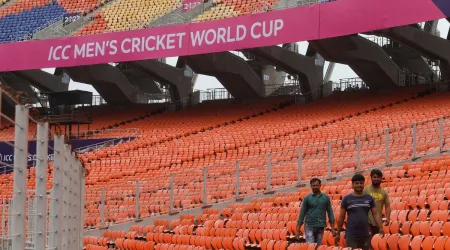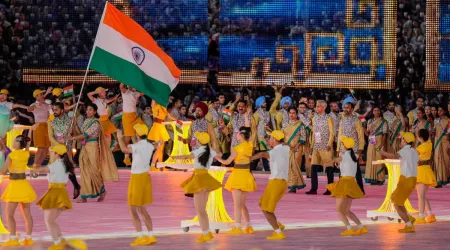- India
- International
Skating on thin ice: Hockey heads for tumultuous future
With hockey's superpowers struggling financially, leagues and tournaments suspended, the sport is treading tough times.
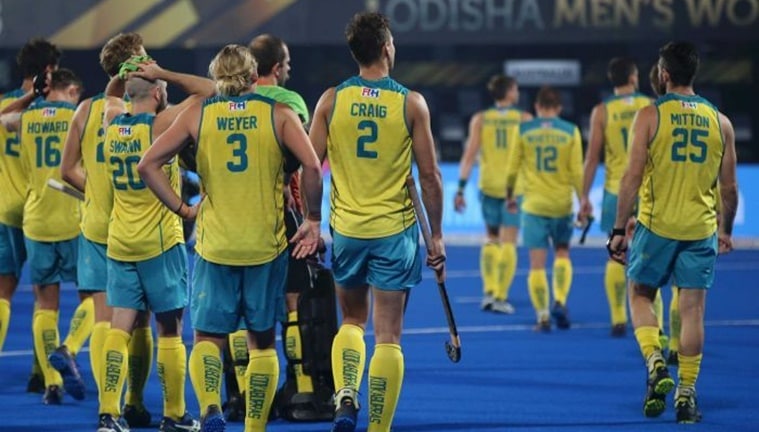 For most nations, save for countries like India, Netherlands and Australia to some extent, hockey has a hand-to-mouth existence. Now, even the top nations are struggling. (File Photo/AP)
For most nations, save for countries like India, Netherlands and Australia to some extent, hockey has a hand-to-mouth existence. Now, even the top nations are struggling. (File Photo/AP)
On April 2, one of Netherlands’ biggest clubs, Tilburg, suspended payments for their staff and coaches, among the first sides in the hockey world to take such a measure since the outbreak of the coronavirus. The club, in its defence, said hundreds of thousands were lost in revenue after the season was abruptly stopped and the expenses kept mounting. In Australia, too, it has emerged that the salaries of coaches have been help up and the clubs were refunding the registration fees to their members, according to The Reverse Stick podcast.
Hockey has never been a big sport money-wise. For most nations, save for countries like India, Netherlands and Australia to some extent, it’s a hand-to-mouth existence. Now, with top of the top nations struggling, combined with the current fragile situation of the International Hockey Federation (FIH) and an uncertain future, it is feared that the sport could be headed for a tumultuous period.
“Like for every company, all sports institutions, international federations, clubs, leagues… we will also be impacted. The question is, by how much? That is difficult to say right now not knowing when this crisis will end,” FIH CEO Theiry Weil says.
Weil was FIFA’s marketing director during the previous global recession, in 2008. Back then, he says, there was one major difference: “At least the matches were taking place.” Right now, FIH’s flagship tournament, the Pro League, has been suspended till July. On Friday, New Zealand called off their tour to India next month, where they were scheduled to play two matches.
Weil says they will wait till mid-August to see if a part of the season can be salvaged. “In September, a lot of domestic seasons start. So after mid-August, it doesn’t make sense to continue (with Pro League). Then we might have to stop 2020 season and look forward to plan the new season in 2021,” Weil says.

That could result in the FIH having to return the sponsors and broadcasters their money, leading to a loss in revenue since the tournament isn’t insured. For the FIH, which according to The Hockey Paper suffered a loss of £590,000 last year, could be a massive blow. To compound their woes, the postponement of the Tokyo Games means that International Olympic Committee (IOC) could freeze the payment they are entitled to receive every four years.
READ | Why Hockey 5s could be the future of the sport at Olympics
The sports are divided in five categories, and each international federation receives money depending on their audience and size, with those in top-most bracket receiving around $40 million and the lowest getting $7 million. Weil doesn’t reveal the category where hockey belongs but says it is a ‘substantial amount.’ “We are one of those which are depending on that (IOC payout). With the postponement of the Games, this is another open question. (But) I am extremely confident that the IOC will not let down the international federations in that regard,” he says.
So far, India has remained unaffected. Most of Hockey India’s financial needs are fulfilled by the government and its primary sponsor, too, is a state government. There have been no indications of a cutback by either the union sports ministry or Odisha, meaning the interest of Indian players and coaches remain protected. But that isn’t the case elsewhere.
In this week’s special we revisited the 2018 Men’s Hockey World Cup in Bhubaneswar!
Visit our Youtube channel to relive the best moments from the World Cup!
🔗 – https://t.co/PMzBkmURG2#HWC2018 pic.twitter.com/Nvy4JSLOne
— International Hockey Federation (@FIH_Hockey) April 5, 2020
Across Europe, the most dominant region, the leagues have been already suspended. There has also been a growing discontent because of the Pro League, with many feeling that the tournament had damaged the continental club hockey. However, with countries likely to feel of the pinch of the impending economic crisis, it is speculated that some national federations might not have the funds to stay afloat and participate in the tournament that involves excessive travel.
Weil says the current situation is ‘concerning’. “We need to do an assessment… be frank with each other and see who has suffered an extreme loss and cannot participate, maybe, in the next season. Maybe, in two seasons’ time they could comeback. But today, all this is purely based on speculations,” Weil says.
In a way, hockey’s story encapsulates the gloomy future a lot of Olympic sports, which are devoid of hefty sponsorship and broadcasting deals, are staring at. Especially at a time when the IOC has been pushing for events that appeal to a larger audience, as well as e-sports.
READ | Could Esports be an Olympic Sport in 2024?
Weil is under no illusion of the challenge he is facing, but is confident that the sport will turn the tide and remain relevant at the Olympic level. “It will hit us. The question is how big will it hit us,” Weil says. “But when the crisis is over, I think hockey will have a future, when we are talking about the sport itself. Leagues will be there, international hockey will be there, maybe stronger than now.”




















